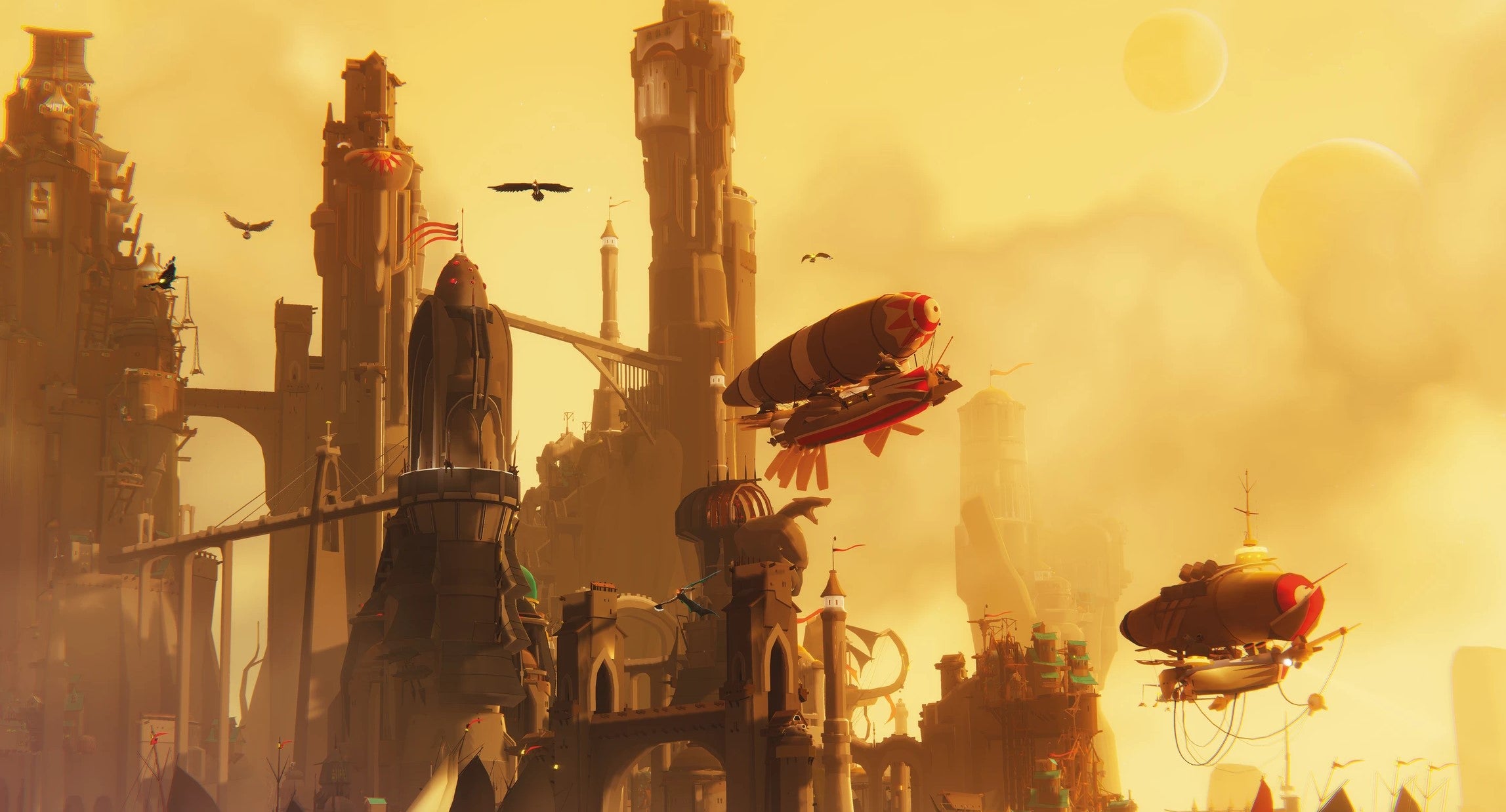A gentle and unusual building game that’s memorable but missing some purpose.
Bulwark is a city-building game that works differently to any city-building game I’ve ever played. Faced with the barren rocky outcrops of a stormy archipelago, and a handful of buildings to place on them, I thought I knew what to do. In a sense, I did – I knew I needed to build all over it. But how I’d end up doing that would be in a way completely of the game’s own. Bulwark is eccentric. Bulwark is its own thing, for better and for worse.
Bulwark: Falconeer ChroniclesDeveloper: Tomas SalaPublisher: Wired ProductionsPlatform: Played on PCAvailability: Out 26th March on PC (Steam, GOG), PS4, PS5, Xbox Series X/S, and Xbox One
I expected that, to a degree. To fill you in a bit: Bulwark is the second game in what we now know will be a trilogy – the Falconeer Chronicles – made by solo designer Tomas Sala. The first game, The Falconeer, came out a few years ago and had you fly around a stormy archipelago on the back of a giant falcon. It was an aerial combat game. This second game takes you back to the same stormy archipelago but puts a zoomed out, city-building perspective on it. And the third game, known as Project Ancient Waves, will take us there again in a different way. I like this.
I doubly like it because the setting is one of the things I found so captivating about The Falconeer when I reviewed it. What struck me was how strange and how like the inside of someone’s head – Tomas Sala’s head – it felt. It was a seascape of fog and clouds and kaleidoscopic hues, as the sun roamed around, lighting it from different angles. It was a seascape of loneliness and not a small touch of desolation, which was echoed in the game’s sad story. It was unlike anywhere I’d ever been before, a kind of personal statement of a world, and I thought it showed the creative power a game can have when it’s the product of one mind.
I’m delighted to be back in that world again and to see it anew, but the point I’m trying to make here is that Tomas Sala likes to do things differently. And so we circle back around again to the ins and outs of how Bulwark works. It’s awkward and obscured by design. It doesn’t control like other city-builders, and it doesn’t unfold like other city-builders. Honestly, I was confused the moment I picked up the controller the game recommended I play with. Even many hours later, I still contend with it. Mouse and keyboard alleviates this a little, but it’s not so much a control thing as a fundamental thing. And ironically, none of this confusion comes from the game being complicated, but from the opposite. It comes from it being incredibly simplistic.
